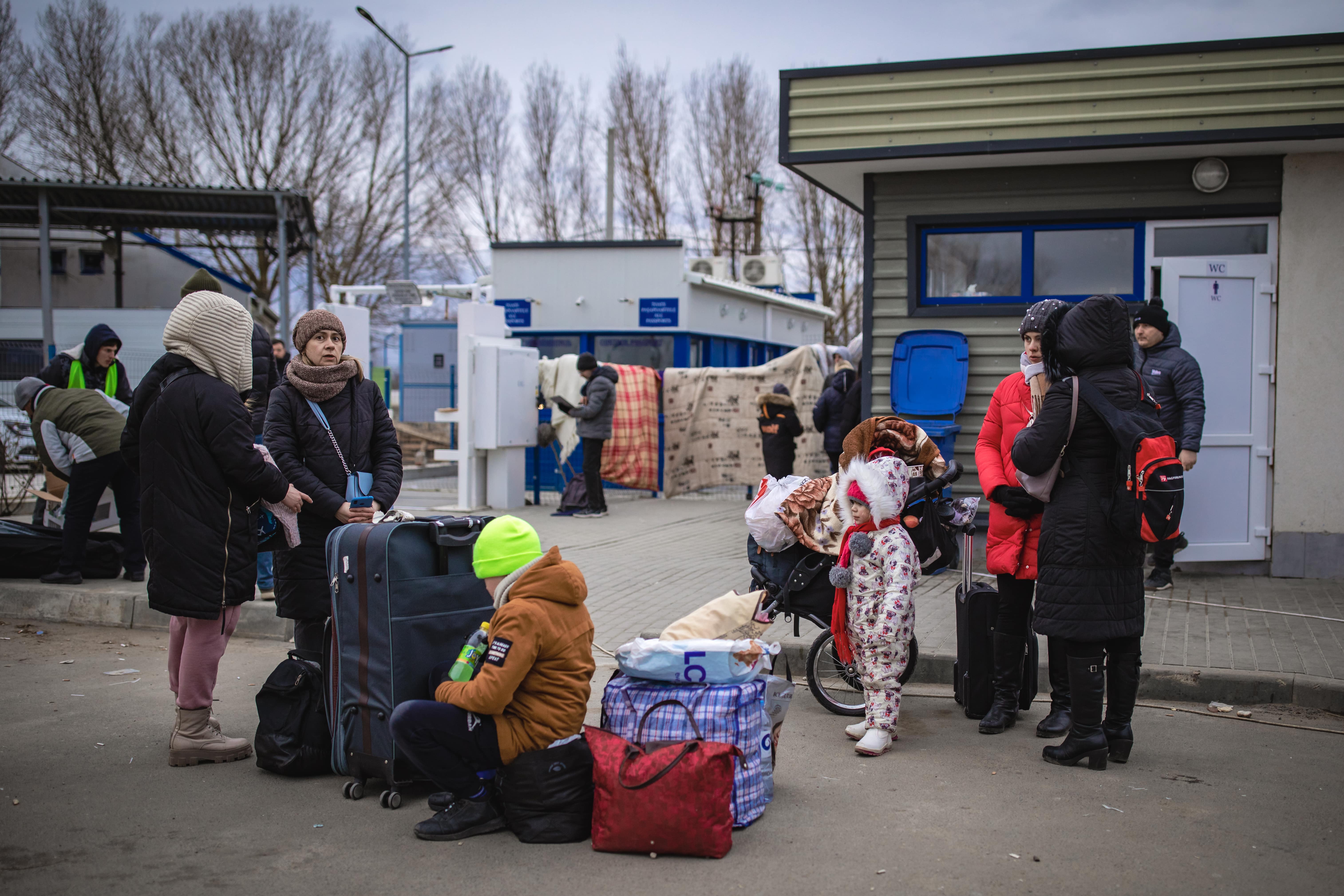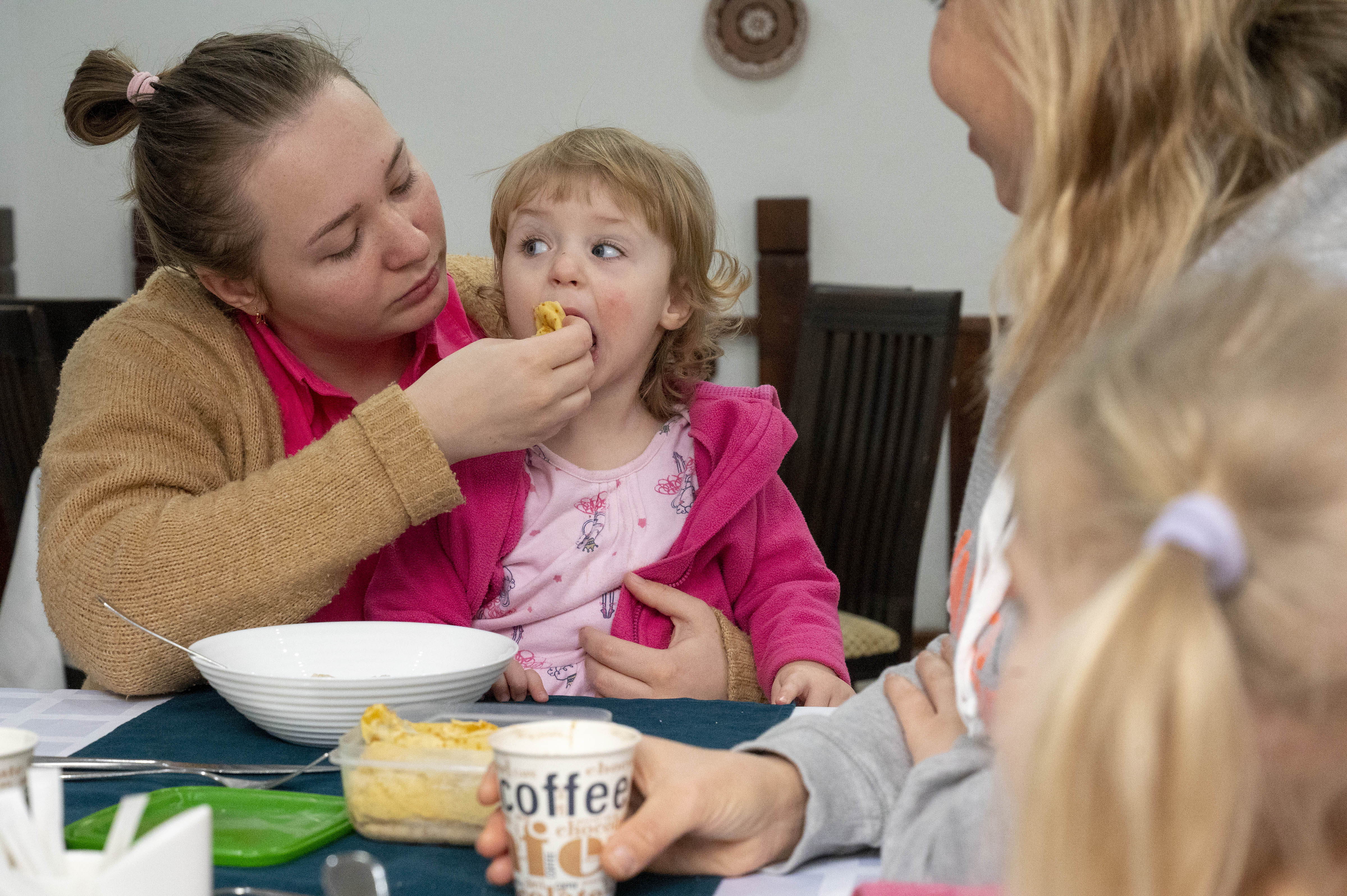
 Moldova, refugees from Ukraine, Caritas Germany
Moldova, refugees from Ukraine, Caritas Germany
Strengthening Moldova's Refugee Response with Data to Protect Children
Palladium has been working closely with the Moldovan government over the past year on its refugee response plan. With the goal of not only supporting the Ukrainian cause but strengthening Moldova’s capacity to better serve the needs of its refugees, Palladium has helped the country improve its data practices to better understand the needs of the refugees and develop resolutions accordingly.
Since the Russian invasion of Ukraine last year, over 8 million Ukrainians have fled to neighbouring countries. The Republic of Moldova, a small country of 2.6 million people, saw an influx of 796,000 refugees. While the majority have made their passage to other countries, over 100,000 remain, most of whom are women and children, including unaccompanied children.
Although it is one of the poorest and smallest countries in Europe, Moldova has welcomed its neighbouring refugees with open arms--establishing over 90 refugee centres in the first month of the war. Civil society and private citizens alike have also been providing tremendous support to cover basic needs and host refugees in their homes. Due to Moldova’s limited resources, the country has been engaging the international community for support and Palladium has taken an active part in the process.

Ukrainian refugee mother in Moldova feeds her child. (photo by: Robin Loznak, Heart to Heart International)
Data’s Role in Supporting Refugees
Palladium is a consortium member of the USAID-funded Data for Impact (D4I) project and leads its work in Moldova. As part of the project, the D4I team created refugee data review rooms to inform better decision making in child protection through the institutionalisation of regular data review and improving data collection and visualisation. Established within Stefan Voda rayon’s Directorate General for Social Assistance and Family Protection and in the Ministry of Labor and Social Protection (MOLSP), these refugee data review rooms enabled the mapping of over 98,000 refugees and provided the support needed based on evidence and data the reviews uncovered.
“I am glad that this initiative is continuing, and I appreciate the support of our partners in helping us develop tools to increase social protection for vulnerable groups,” says Alexei Buzu, Minister of Labor and Social Protection. “The data generated will help us to better identify the needs of refugees, host communities, and citizens in difficult situations. It will also help us better plan our response actions. We will be there for those who need our support.”
D4I has also been working to understand the needs of refugees and tailor services accordingly by partnering with the Chisinau Municipality to conduct the mapping of roughly 3,000 Ukrainian children in the region and implement the ‘Help Me To Help You’ campaign. This project provided information to over 315,300 refugees and citizens on municipal services they can access in Chisinau. Palladium’s team subsequently worked with the Municipality on strengthening its capacity for conducting participatory reviews and data analysis with key actors to inform better decision making.
The impact of strengthening Moldova’s data practices are clear. Over 2,800 children were referred to child protection services, 50,610 humanitarian aid packages were provided, nearly 17,500 refugees benefitted from healthcare, and the number of refugee children enrolled in education doubled—illustrating the power of evidence-based decision making.
Data’s Role in Supporting Refugees
The data review room is intended to be adaptable to future challenges and crises, rather than a temporary solution to the refugee crisis. D4I plans to standardise procedures and train staff so the room will be a sustainable fixture of the region’s long-term development planning and evaluation. To date, 1,274 decision makers, child protection specialists, and community social workers gained skills on how to collect, analyse, and visualise data for informed decision making in child protection.
The Ukraine refugee crisis is far from over, and the innovations in both data review rooms and municipal campaigns are only part of Moldova’s ongoing efforts to help those in need, but they are critical nonetheless and were recently recognised as such.
"Palladium’s goal is to not only deliver emergency and stabilisation response but long-term, sustainable solutions needed for a democratic and prosperous society,” says Maria Martinkov, Managing Partner at Palladium. “The Ukrainian crisis is not like any other, and Palladium is committed to providing humanitarian relief and working with impacted countries and their institutions to strengthen their capacity to better serve both refugees and citizens alike.”